Nigeria Caregiving Return on Investment: Summary Report
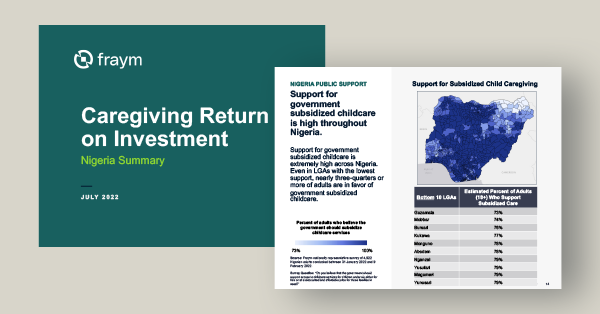
Unpaid caregiving responsibilities represent a key barrier to women’s labor force participation in many developed and developing countries, particularly while children are too young to attend formal schooling. Funded by the Bill and Melinda Gates Foundation, Fraym conducted a cutting-edge study on the economic ROI on childcare programs in the countries above.
Child caregiving responsibilities are a well-documented barrier to higher female labor force participation across nearly all country contexts. In most countries, women disproportionately take on child caregiving responsibilities that restrict the time available for paid work. Caregivers also overwhelmingly left the workforce during the pandemic to return to full-time childcare. As a result, childcare is particularly important for equitable economic recovery globally.
In these reports, Fraym evaluated the existing child caregiving environment in the target countries and quantified the potential economic returns of investing in early childcare programs. The benefits lie in two key areas – increased labor force participation rates and increased economic activity. This key data is then paired with critical statistics on public support for these policies – bringing constituent voices to decision makers and turning data into action.
Read the full reports to see the findings for each country.
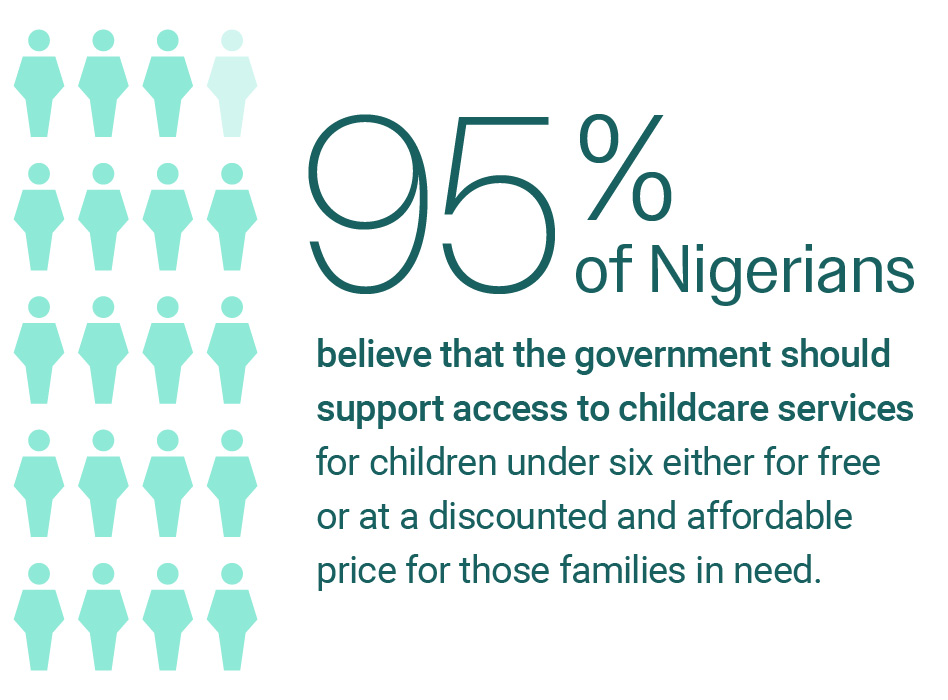
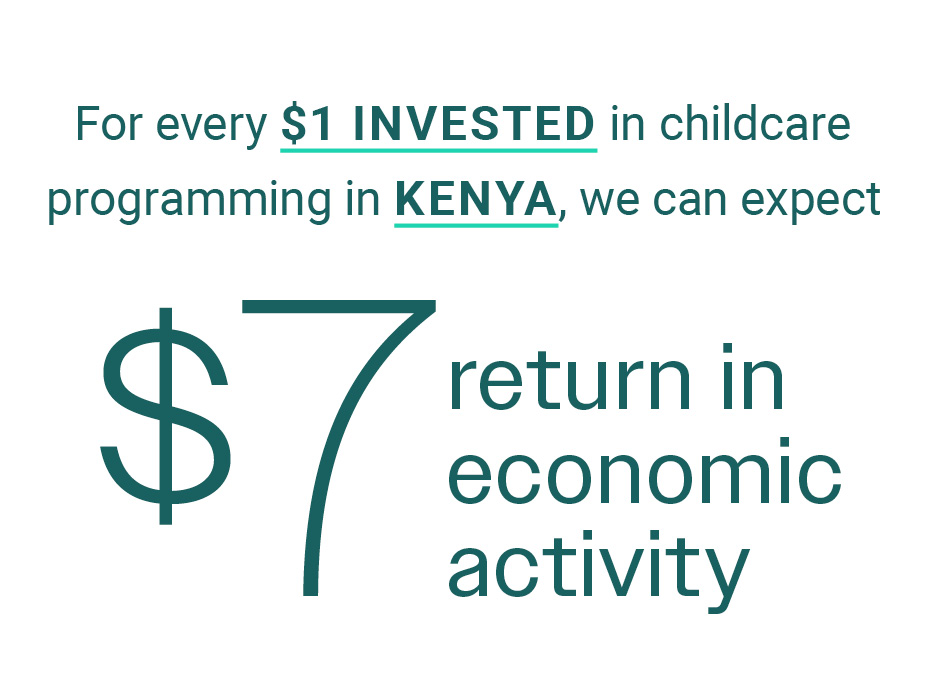
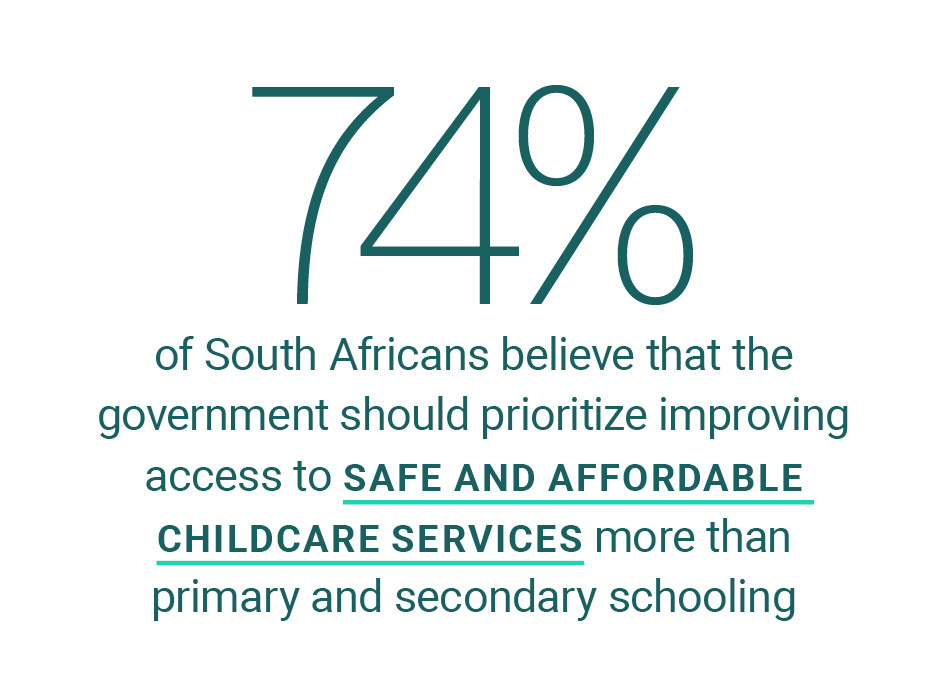
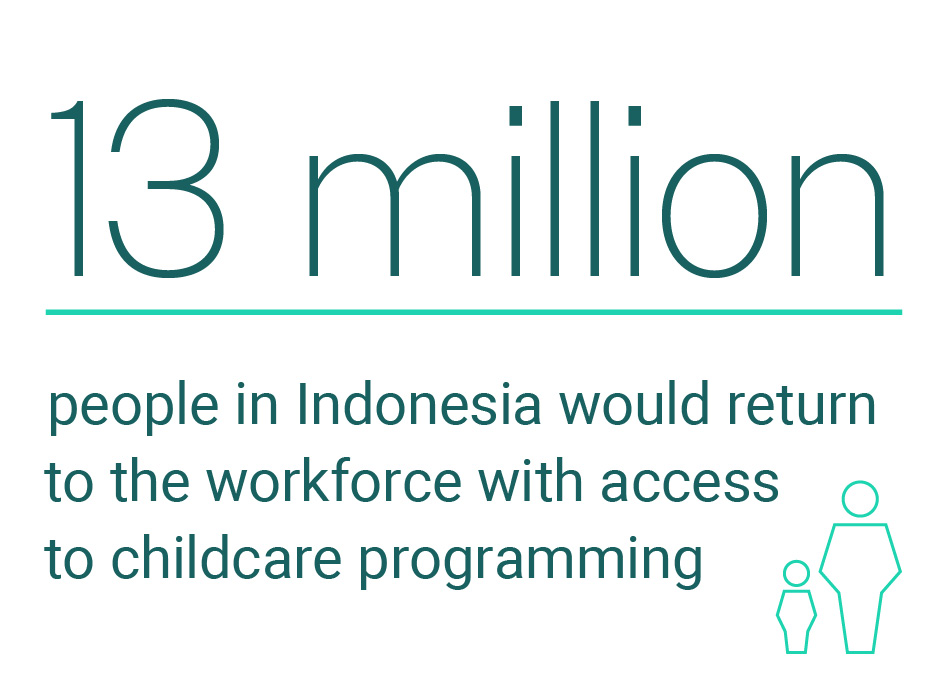
Public support for childcare investments
Economic return on investment
Public support for childcare services compared to schooling
Population that would return to the workforce
%
Increase in labor force participation in South Africa
M
Nigerian primary caregivers could rejoin the workforce
%
of Kenyans support subsidized child care
These reports are among the first to comprehensively measure the potential increase in labor force participation rates directly attributable to improved affordability and accessibility of early childcare options in the selected countries.
Nigeria, Kenya, Indonesia, and South Africa, while all varying widely in size, and economic context, are united by the fact that early childhood caregiving programs would empower caregivers by giving them choices and economic opportunities.
By understanding the existing economic barriers to caregivers, compared to the popular support for, as well as the overwhelming economic and social benefits of childcare programs in most country contexts, policymakers and organizations now have the knowledge required to make informed decisions to combat gender inequality at their fingertips.